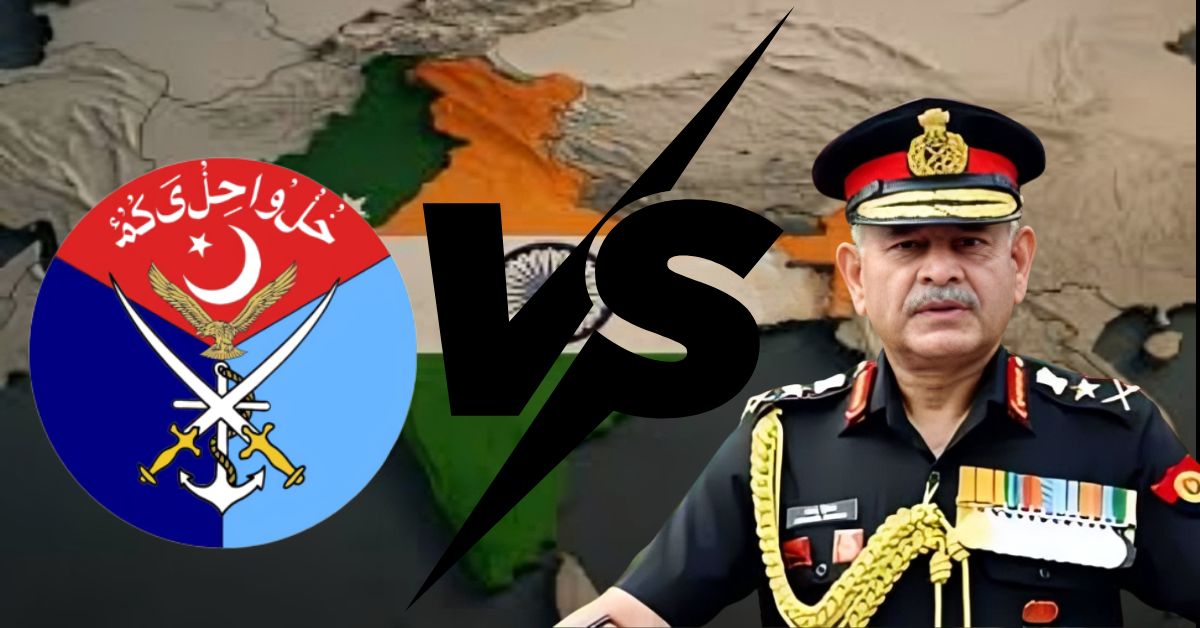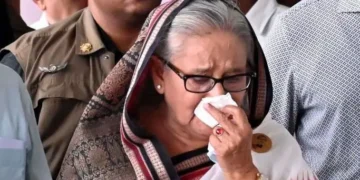Highlights
- India’s Army Chief Gen. Upendra Dwivedi warned Pakistan could be erased from the map if it keeps supporting terrorism.
- Pakistan’s military (ISPR) responded: if India thinks of erasing Pakistan, “India’s map will also be erased.”
- Indian Air Chief claimed Indian forces destroyed Pakistani jets during May clashes; Pakistan denied the claim.
- Both sides refer to last May’s violence (Pahalgam attack) and subsequent operations: India’s Operation Sindur and Pakistan’s Operation Buniyanum Marsus.
- International mediation led to a ceasefire on 10 May, but rhetoric and tensions remain high.
India’s Strong Warning
On 3 October, India’s Army Chief General Upendra Dwivedi issued a hard warning against Pakistan, saying that Islamabad must stop state-backed terrorism or face severe consequences.
Gen. Dwivedi said:
“In Operation Sindur 1.0 we showed restraint. But this time we will show no restraint. We will put Pakistan in a situation that will make them think. If Pakistan wants to keep its place on the map, it must stop state-supported terrorism at the border.”
He claimed Indian strikes in May hit terrorist camps inside Pakistan and Pakistan-administered Kashmir, saying those strikes exposed support for terrorism that Islamabad would otherwise hide.
“ব্যবসায়ী, ক্যারিয়ার বিল্ডার বা মার্কেটার—সবার জন্য এক রোডম্যাপ ! ক্লিক করুন এখানে…”
Air Chief’s Claim and Pakistan’s Denial
India’s Air Chief, Air Chief Marshal A.P. Singh, also said Indian forces destroyed several Pakistani warplanes during the May clashes, including F-16s and JF-17s. He suggested Pakistan later sought a ceasefire.
Pakistan rejected those claims as unfounded and politically motivated. The country’s Inter-Services Public Relations (ISPR) responded strongly.
Pakistan’s Severe Retort
On 4 October, Pakistan’s military spokesperson (ISPR) warned that recent provocative remarks by Indian military leaders threaten regional peace and stability. The ISPR said such comments risk “unjustified aggression and conflict.”
The ISPR issued a stark warning:
“If India even thinks of erasing Pakistan from the map, India’s map will also be erased.”
The statement added that Pakistan would give no ground if a new conflict starts and warned of “catastrophic destruction” if war resumed.
Read More: “A Revolution Is Needed” — Meghla Urges Prayer Spaces for Women Across Bangladesh
Background: May Violence and Aftermath
Tensions flared after a deadly attack on 22 April in Pahalgam (Indian-administered Kashmir), which killed 26 people. India blamed Pakistan for supporting the attackers; Pakistan denied involvement.
In May, India launched Operation Sindur targeting suspected terrorist facilities. Pakistan responded with Operation Buniyanum Marsus. The situation escalated until U.S. mediation produced a ceasefire agreement on 10 May.
What This Means
Analysts warn that the exchange of threats and unproven military claims increases the risk of miscalculation between two nuclear-armed neighbours India-Pakistan. Though a ceasefire is in place, rhetoric from both militaries underscores how fragile peace remains in South Asia.
Source: Kaler Kantho & Dhaka Post


















